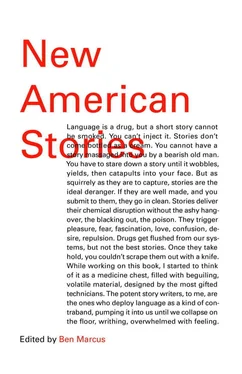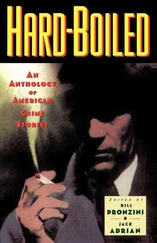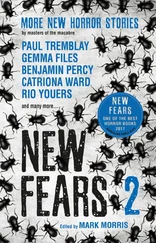“Eh?” said the slippery Swede from beneath a mightily waxed mustache.
Errol asked whether we might have better luck upriver or down, creekside or in the dry hills, in soil yellowish or redder, and the Swede dispensed advice freely.
“One more thing,” Errol said to the Swede. “Has the coach been by? With the mail?”
The Swede laughed. “You’ll know when it has, boy.”
Outside, Errol was visibly glum. “It will come soon,” I said.
“Have you seen it?” he asked excitedly.
“No,” I admitted. “Only it’s bound to.”
Errol scowled. “Fetch our things and find me upriver.”
“But he said downriver.”
Errol took me by the shoulder. “Consider that man our compass, Joshua. He says downriver, we go up. He says hillside and we stay on the banks. Understand?”
And so we moved upriver, and upriver further three days after that. From there we were ever on the move. In years hence I have come to believe that the rotten Swede’s deception combined with the maddening stories I have described infected Errol with a specific lunacy. Lump fever, it was called at the diggings. It left my brother perpetually convinced that gold was just a claim or two above our own, that the big strike was ever around the bend. He was mad with it.
What agitated him further were the Chinamen, who followed us whenever we moved. We would establish a new camp, and sure as the California sun they would relocate to our old claim. The Chinamen moved in the night, it seemed, for when we woke it was as though they had simply materialized at our abandoned claim. I thought them humorous, with their pointed hats and billowy frocks and pigtails. But they made Errol nasty with agitation. He would emerge from the tent each morning and immediately look downriver to where the tongs were already up and working the patch we’d left. “It’s an ignorant strategy,” he said often. Indeed, we never saw them pull anything of value from those worked holes.
Errol and I had panned flakes enough only to partially replenish our stock of meat and flour. The rest of what we needed we bought on credit. Each morning and night I fried a hunk of pork in the same skillet we used to pan the river. After, I mixed flour in the grease to make a gray, pork-flecked porridge. I was a lacking cook, I admit, but that pork would have bested the fairest housewife. Pickled, cured or fried, the swine of California was the stinkingest salt junk ever brought around the Horn.
Errol sloughed off weight. One morning I watched him from behind as he rinsed his dish in the river. He had not yet donned his shirt and the way he was bent caused the bones of his hips to rise from his trousers in startling iliac arcs. He reminded me of a bloodhound we had once, with the same scooped-out space where meat ought to have been. This socket movement was hypnotic, so much so that I felt compelled to run my thumb along one of those bone ridges. When I touched my brother, he jumped.
“You’ve gone a beanpole,” I stuttered.
He held the spoon he’d been washing at my eye level. The reflection was a skeletal version of myself, bug eyes and bony nose. I reached up and touched my whiskers, scraggly thin and clumped with filth. I was unsettled by my reflection and pushed the spoon away. I resolved to shave as soon as we could afford a whetting stone.
Throughout that day and others I considered that reflection. Its most unsettling aspect was not my thinness or my griminess, but my new resemblance to Errol. I’d somehow acquired his nose, his jawline, his seriousness about the eyes. He and I had never looked particularly similar before, but we did there, in the agony of starvation and ceaseless labor. The territory had twinned us.
VI. AUGURY AT AN AGREEABLE SLOUGH
Lump fever took us into November. We would shovel and pan, shovel and pan, shovel and pan. And without fail Errol would get to looking upriver, and we would have to pick up our stakes and start anew. At the rate we were moving, we would retrace our route eastward to Ohio by spring, a notion I would have found more than acceptable, were we not certain to die on the way.
Eventually we came to a sunny slough where the water was shallow and slightly warmer than we were accustomed to. We had barely begun our endeavor when, without a word to me, Errol began to pack our things.
I was crazy with fatigue, perhaps. Instead of packing I retrieved the mustard jar where I kept our flakes. On it I had pasted a strip of paper which I had marked from the bottom up with the names of foods available in camp: flour, salt pork, pork stew, pork and beans, roast beef and potatoes, plum duff, canned turkey with fixings, and, at the very top, oysters with ale or porter. We had never eaten above pork and beans and I reminded him of it.
“Let’s work this bar awhile,” I begged him. “A week, say.”
Errol stood and looked to me. He made a sad clicking with his tongue. “This is not the place.”
“We’ve been at it less than a day.”
He resumed gathering our few things, including that evil keg of salt pork.
“Errol,” I said.
“We haven’t the time,” he shouted. “Men are getting rich around us!”
“A cradle, then.” I had read of men using rocking boxes during the rush down in Georgia.
Errol scoffed. “The Swede’s asking a hundred dollars for one, you fool.”
“We’ll build our own. Work twenty times as much rock through it.” I held the mustard jar, shaking it like a babe’s empty rattle. “This is the place.”
Errol hovered over his ruck where he was rolling it. “You’re certain?” I knew what he was asking by the way he asked it. He harbored such reverence for my visions that it changed the way he spoke. “You’re certain ?” he repeated.
What I was was homesick and hungry and bone tired. But my brother made no allowances for that. “I’m certain,” I said.
Errol dropped his sack and clapped me on the back. “Ho, ho!”
A more decent man would have been troubled to see his own brother go giddy at such a lie. But my conscience was waylaid by his gratitude, which caused a sudden sting in my heart. I had long known my brother had brought me to California not for my strength or my intellect or even for my company. He had brought me so that my auguries could make him rich.
I’d never found the fact troubling; it was in keeping with the way he’d been to me as long as I’d been alive. But what comfort it would have been, I thought now, if but once on this long, torturous journey he had intimated that he wanted me along to help him, because we were brothers. Brotherhood had never been on his mind, and for the first time I hated that it wasn’t. I hated that he only considered me of use when the visions overtook me. And in this thinking I saw his cure and mine: I would find our gold. I would tunnel my way to his affections. I would make him love me in the way of brothers.
I removed my spectacles, pinched the bridge of my nose and closed my eyes. “I have seen it,” I said. “Oh, I have seen it.”
VII. A CRADLE AND ITS TROUBLES
Back home we could have built a cradle in two hours for two dollars. But lumber was scarce and expensive so we had no choice but to cut our own. From the Swede I procured a saw, a hammer, and some nails, all on credit. Errol and I worked steadily at the cradle for three days, a lifetime in the gold hills. Once he took a step back to assess our work, the crude box set on rockers. “I must admit,” he said, “I never imagined I would be caught a bachelor fashioning a cradle in the womanless wilds.” I knew about the branch of juniper he’d notched, a notch for each of the thirty-six days since he’d dispatched his last pitiful letter to Marjorie. But he seemed in good spirits as we worked, and I softened toward him. He had a winning way about him when he chose.
Читать дальше










![Женя Джентбаев - neo futura [stories]](/books/692472/zhenya-dzhentbaev-neo-futura-stories-thumb.webp)

